TRAINING GUIDE
Foam Roller
The ultimate guide to get inspired and learn more about Foam roll and Tube roll. It will help improve both your training and body. Foam roller training is for all and not just for athletes, everyone can benefit from foam roll training because becoming mobile enough to properly perform basic human movements will help to avoid overuse injuries and chronic pain later in life.
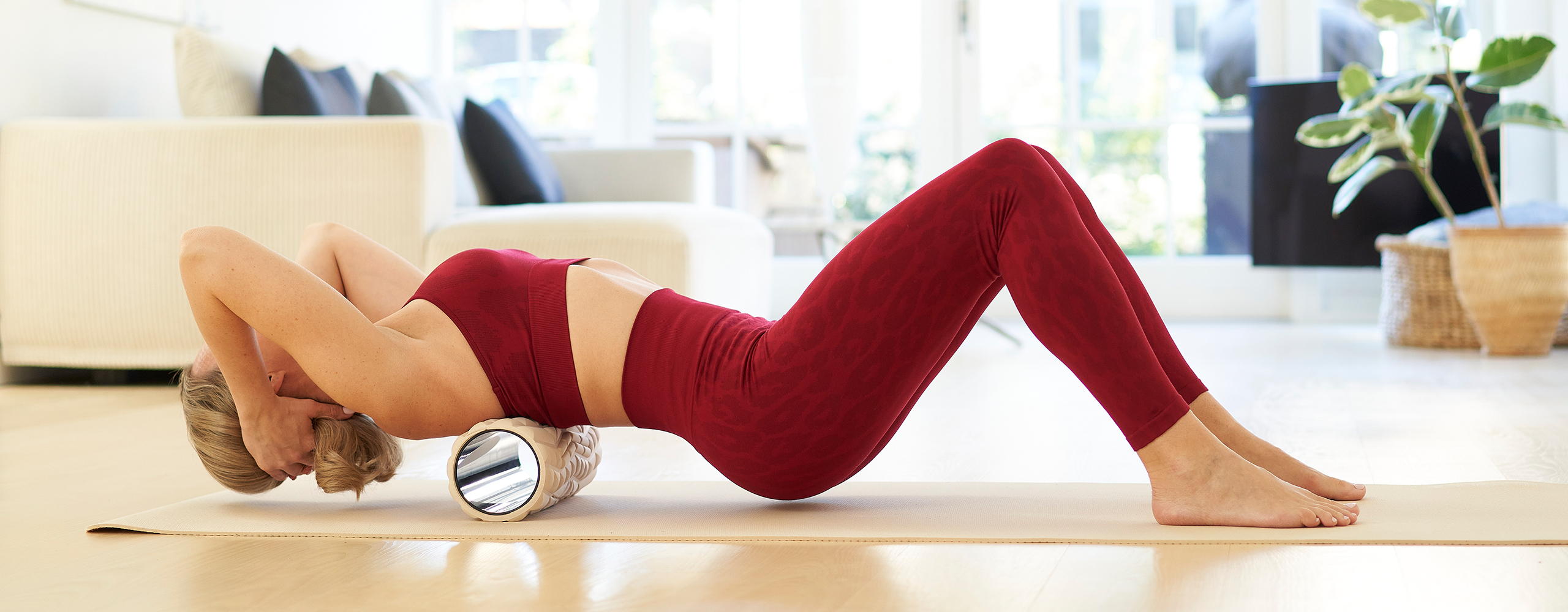
TRAINING GUIDE
FOAM ROLL
The ultimate guide to get inspired and learn more about Foam roll and Tube roll. It will help improve both your training and body.
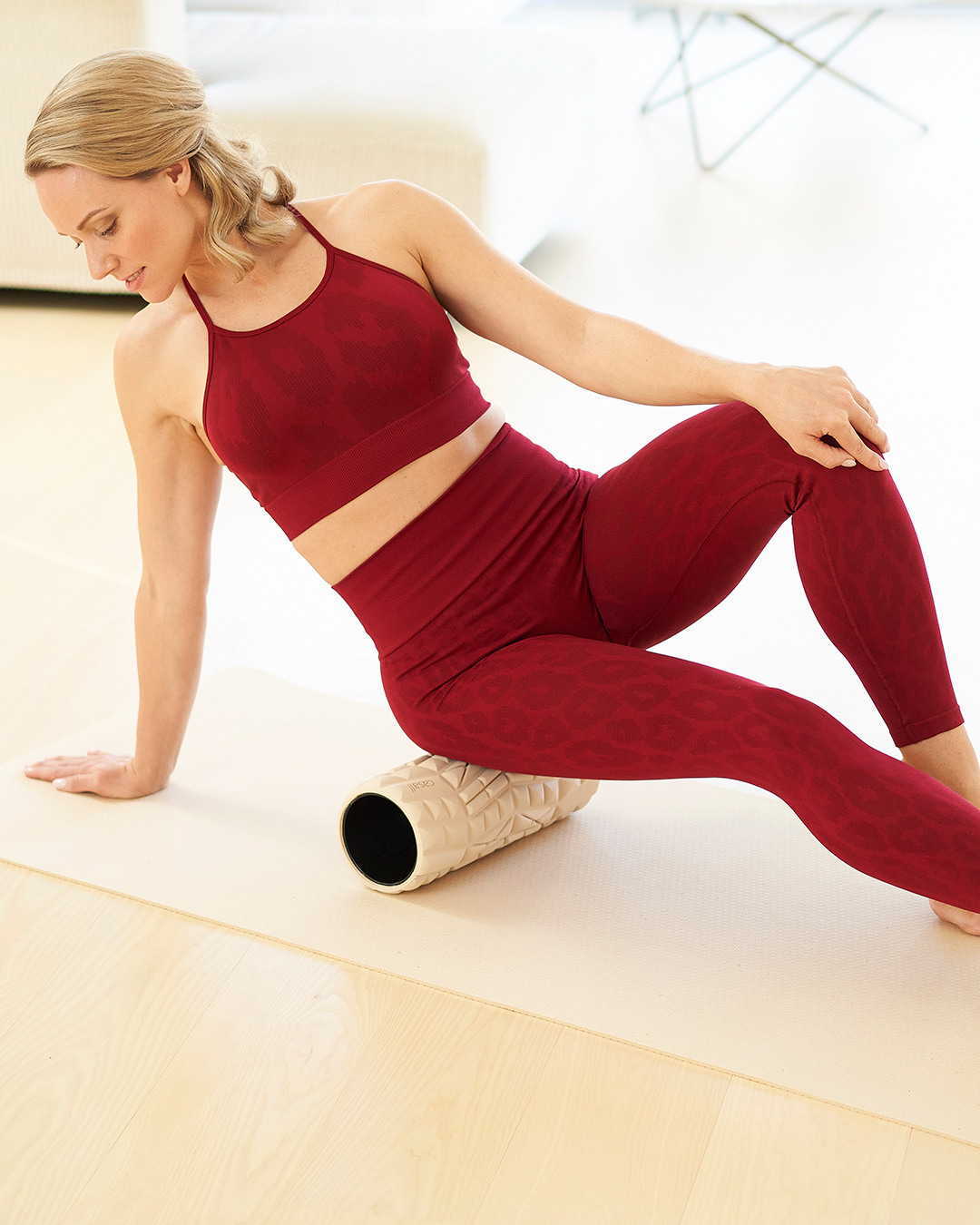
How to choose the right Foam Roller
We have designed different rollers based upon your needs and wants. The Casall foam and tube rollers vary in material density, length and mobility. Generally, if you are new to roller training or suffer with muscular tension then we suggest you to go for a softer density such as a Casall small or medium foam roller, that is easy to manage and comfortable to use. If your training type is performance, then we advise possibly a harder density such as a Casall tube roller or Casall Foam roll mini. If you are interested in using the roller for additional training such as stability training, then we suggest a Casall Long foam roller.
Foam Roller - Small
Foam rolling can be painful in the beginning because tight muscles are pushed upon with your full body weight. Casall small foam roller will produce a little less pain with its firm density compare to Casall Tube roll. The smaller size also makes it easy to bring or store and easy to handle for leg exercises.
Density: 50,78 kg/m3
Material: EVA and Polyethylene, PVC FREE / No phtalates.
Recommended for: Beginners and intermediate users.
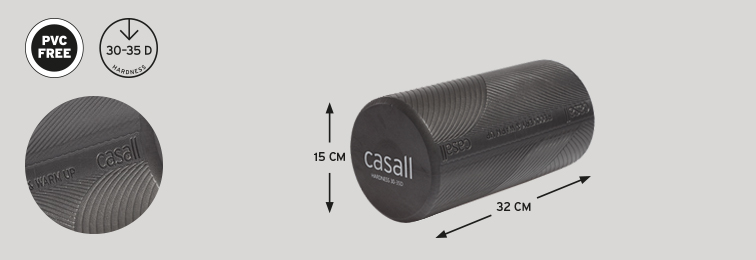
Foam Roller - Medium
Firm density and medium length makes foam roller perfect for first time users. The Foam roll with 61 cm length covers larger area of muscles and make it easier to find balance while doing practice.
Density: 50,78 kg/m3
Material: EVA and Polyethylene,PVC FREE / No phtalates.
Recommended for: Beginners and intermediate users.
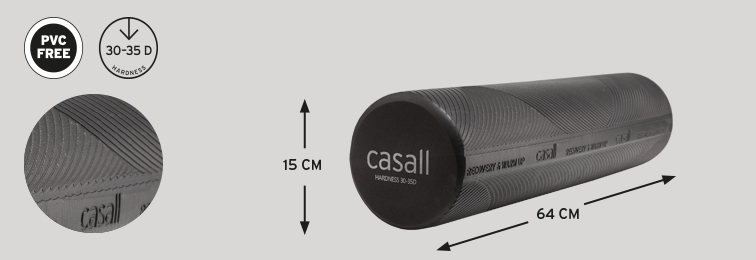
Foam Roller - Large
Firm density and long length makes this foam roller perfect for both massage, balance and core exercises. The Foam roll with 91 cm length covers large muscle areas and the lenght also makes it perfect for advanced core and balance exercises.
Density: 50,78 kg/m3
Material: EVA and Polyethylene, PVC FREE / No phtalates.
Recommended for: Beginners and intermediate users
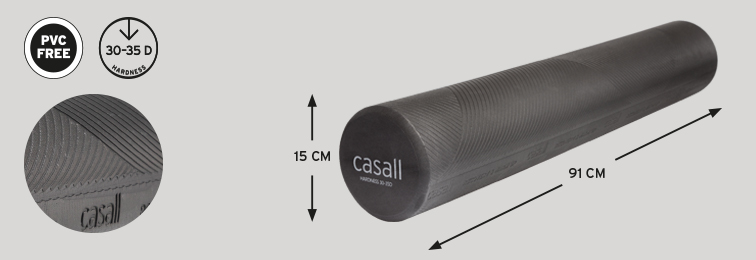
A solid tube roll for the most optimal muscle relief and tension alleviation. Ribbed surface, compact construction and hardness 35–40 D with density above 113 kg/m3 for enhanced effects and results. The ABS inner tube also helps keep the hardness and shape when frequently used.
Density: 113 kg/m3
Material: Outer foam: EVA plastic, Polyethylene and Thermoplastic elastomers (TPE). Inner tube: ABS plastic.
Recommended for: Experienced users
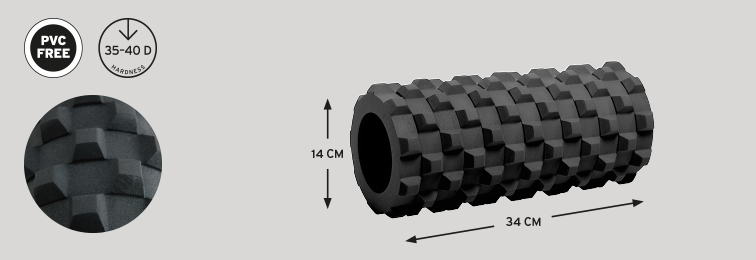
Pressure point balls are specially designed to reach the deepest muscle tissues to relieve stress and tension. Use the ball to apply gradual pressure on knotted muscles to stretch, improve circulation and alleviate pain. It's the perfect product for both warm-up and post workout recovery.
-

Intense Foam Roller - Black
£69.00
-

Tube roll bamboo - Natural
£69.00 -

Tube roll bamboo - Black
£69.00 -

Pressure Point Ball - Black
£22.00
FOAM ROLL EXERCISES
These exercises and programs have been designed to guide and inspire your home training. They will help the beginner to get started using bodyweight exercises and the more advanced user to take their training to the next level. The rest and recovery routines will help to give you a more functional body, improve strength, mobility and flexibility and therefore help you look and feel good.
1. FOAM ROLL EXERCISE - THIGHS
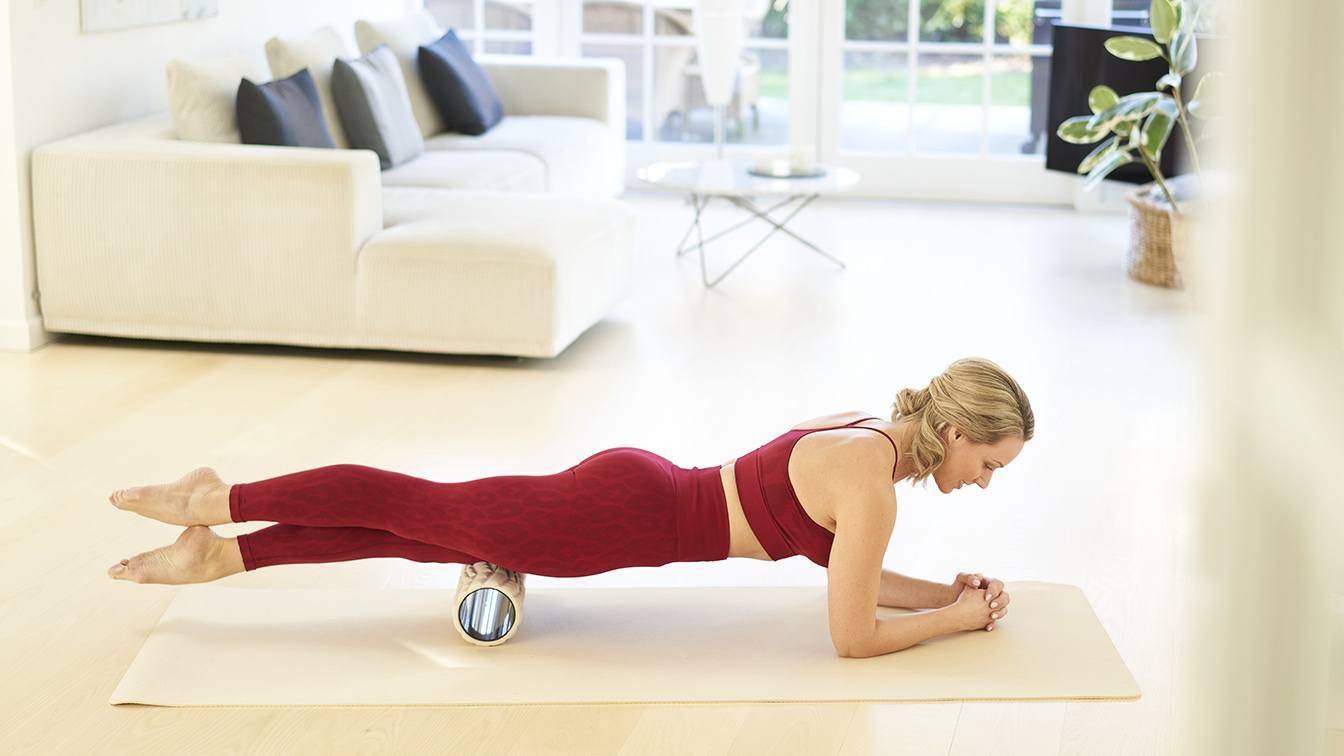
Place the foamroller under one leg. For less pressure place one leg in the floor and bend the knee for support. For more pressure place the other leg on top of the bottom leg to get a more intense feeling.
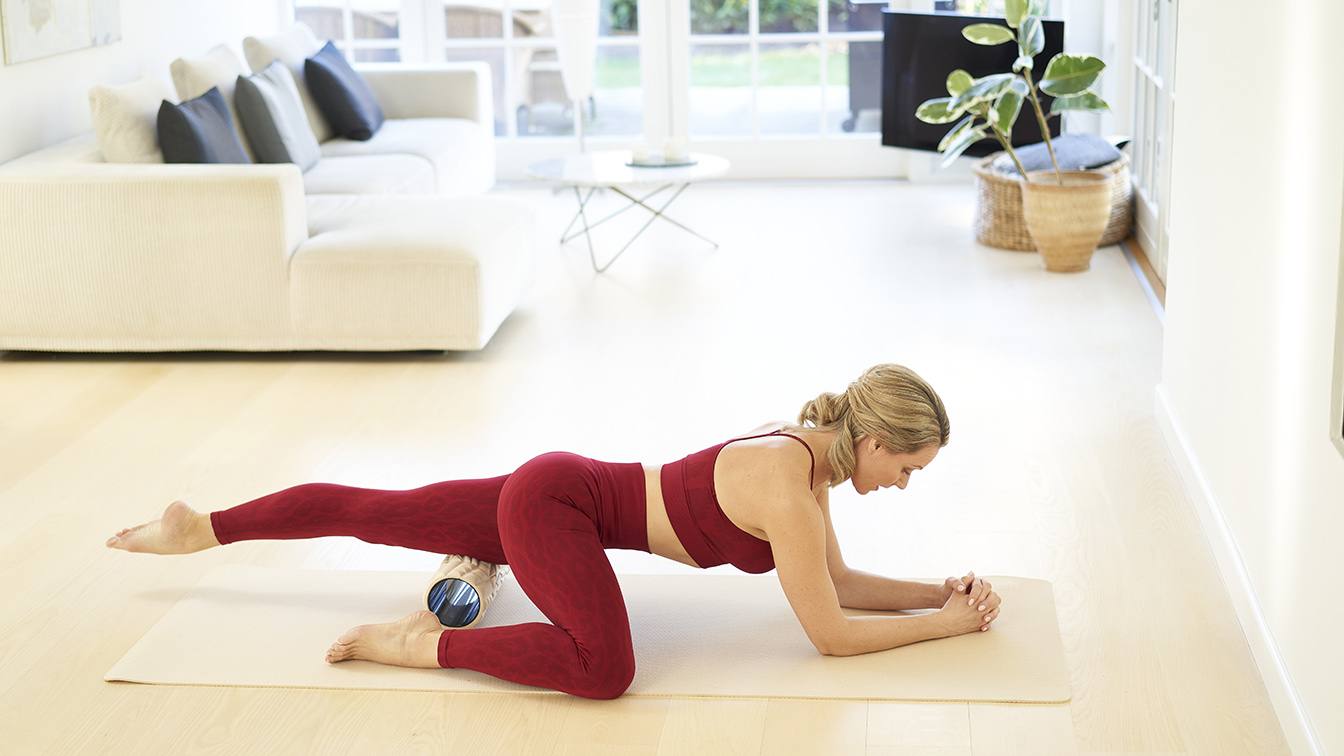
Slowly roll forwards and back on the foamroller, from under your hip and down to above your knee. Breath deep and slowly and if you find a pressure point that’s hurting you a bit more, roll just around it for a while and then slowly massage the foamroller in to that area for a greater release.
2. FOAM ROLL EXERCISE - UPPER BACK
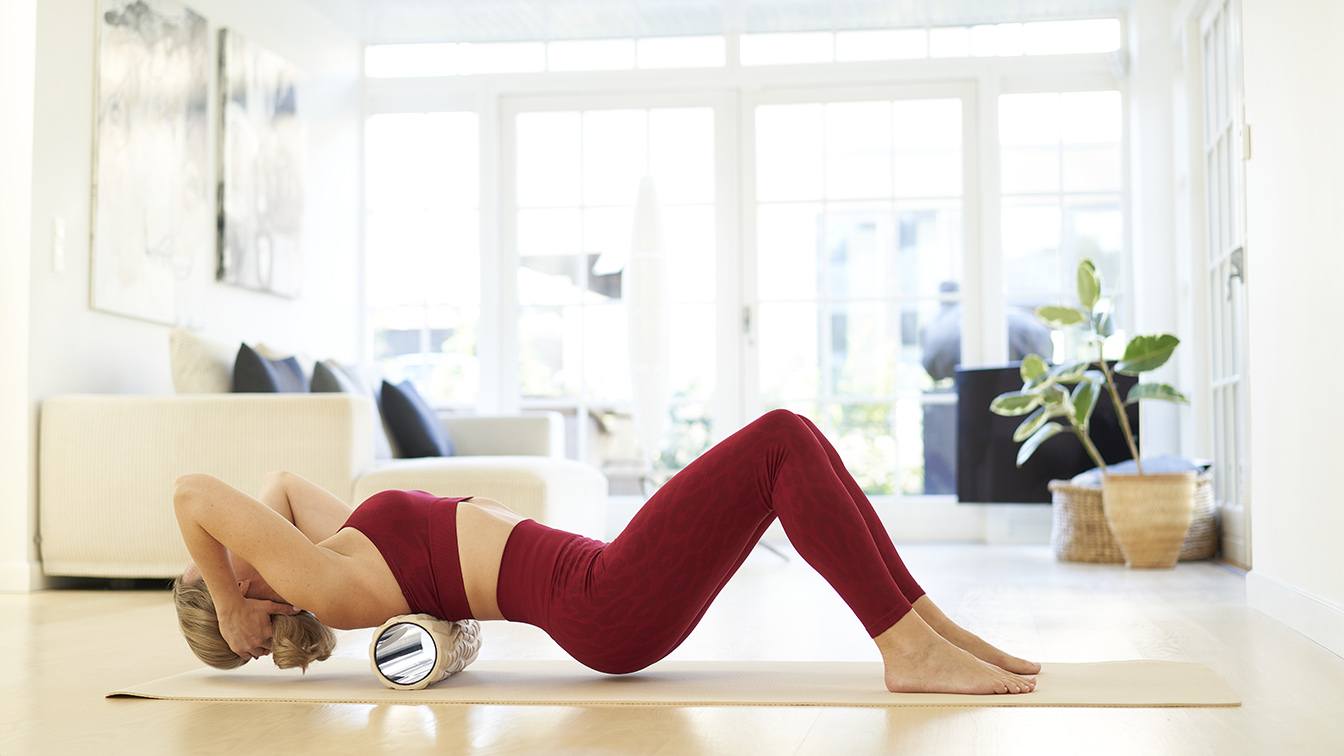
Place the foamroller under your shoulder blades. Place your hands under your head for support and lift up your body. Slowly roll from over your shoulder blades and up toward your neck a few times and releasing tension.
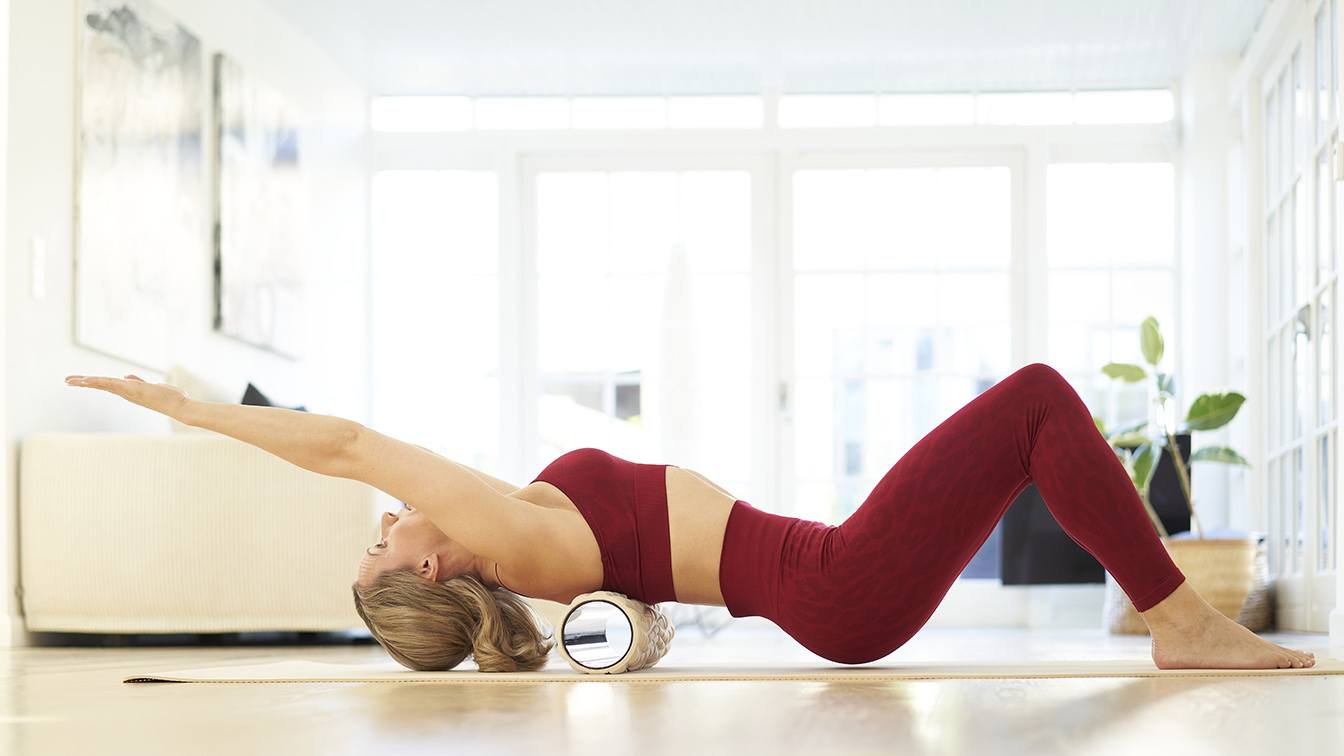
After a few times stay up and look forwards as you stretch your arms. Than go backwards extending over the foamroller as far as you can reaching your arms backwards as well, to get deeper into the stretch. Try to stay there and breath for a few breaths before repeating.
3. FOAM ROLL EXERCISE - GLUTES
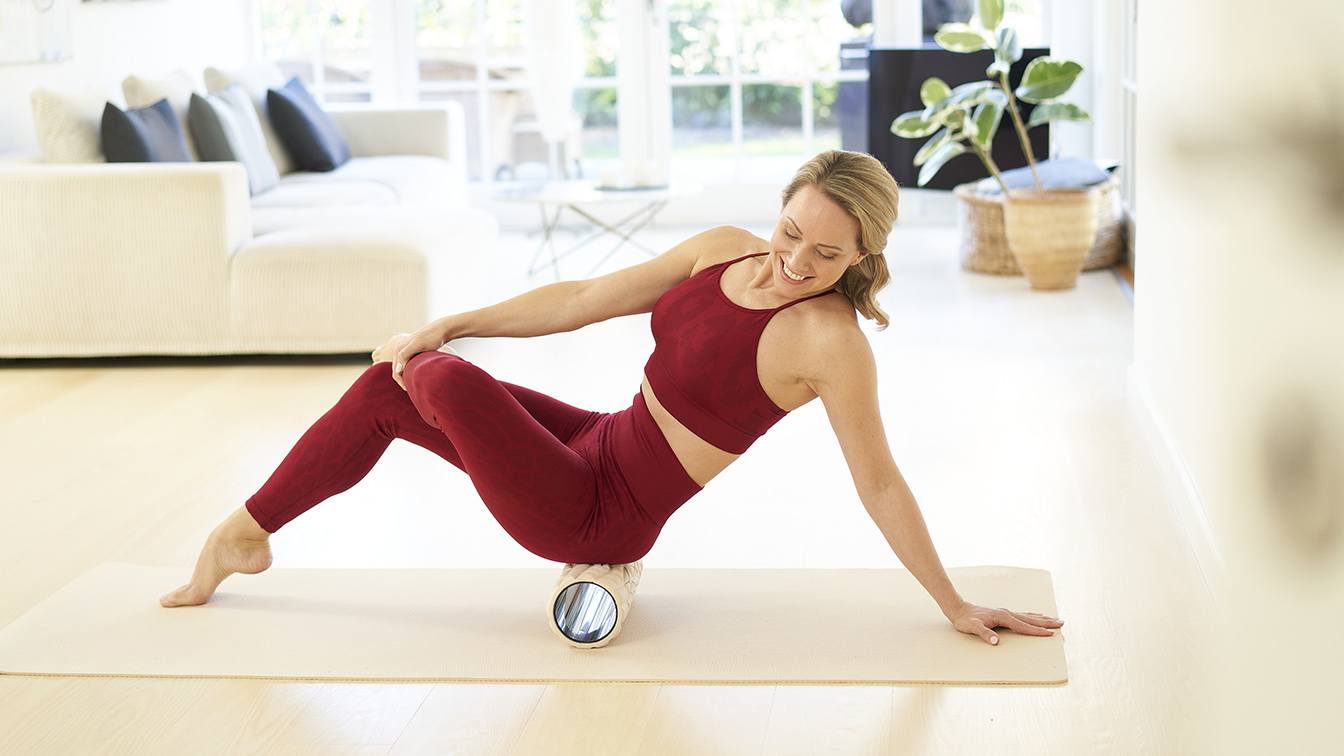
Place yourself on the Foamroller with only seated on one glute. Cross the other leg over the knee. Now slowly roll over the foamroller forwards and back to release tension in your glute. Make sure you put all the weight on to your glute and not in the hands supporting you in the floor.
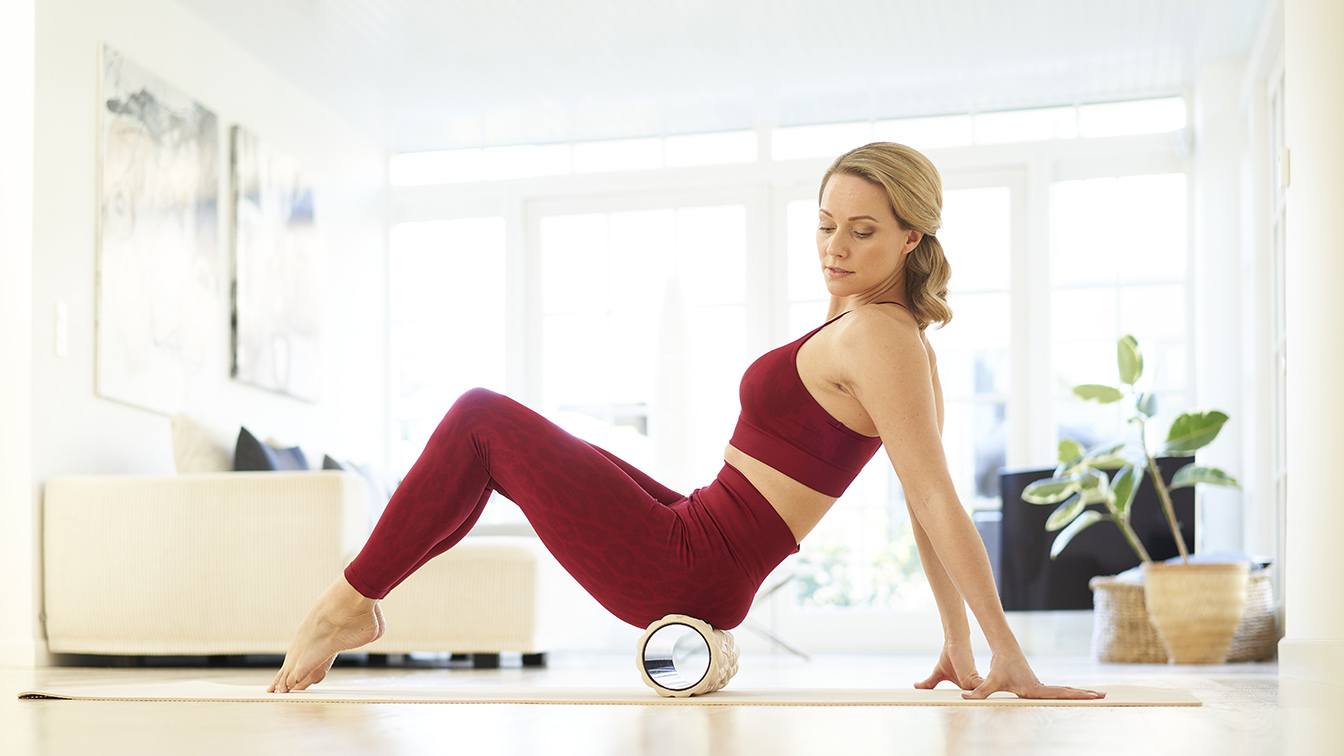
Start to circle around the glute in small circles and go both ways. Listen to your body where your tension is. When you find it, circle around it spot more intense to loosen it up and remember to breath deep at the same time to get more connected in your body.
4. PRESSURE BALL EXERCISES - FOOT
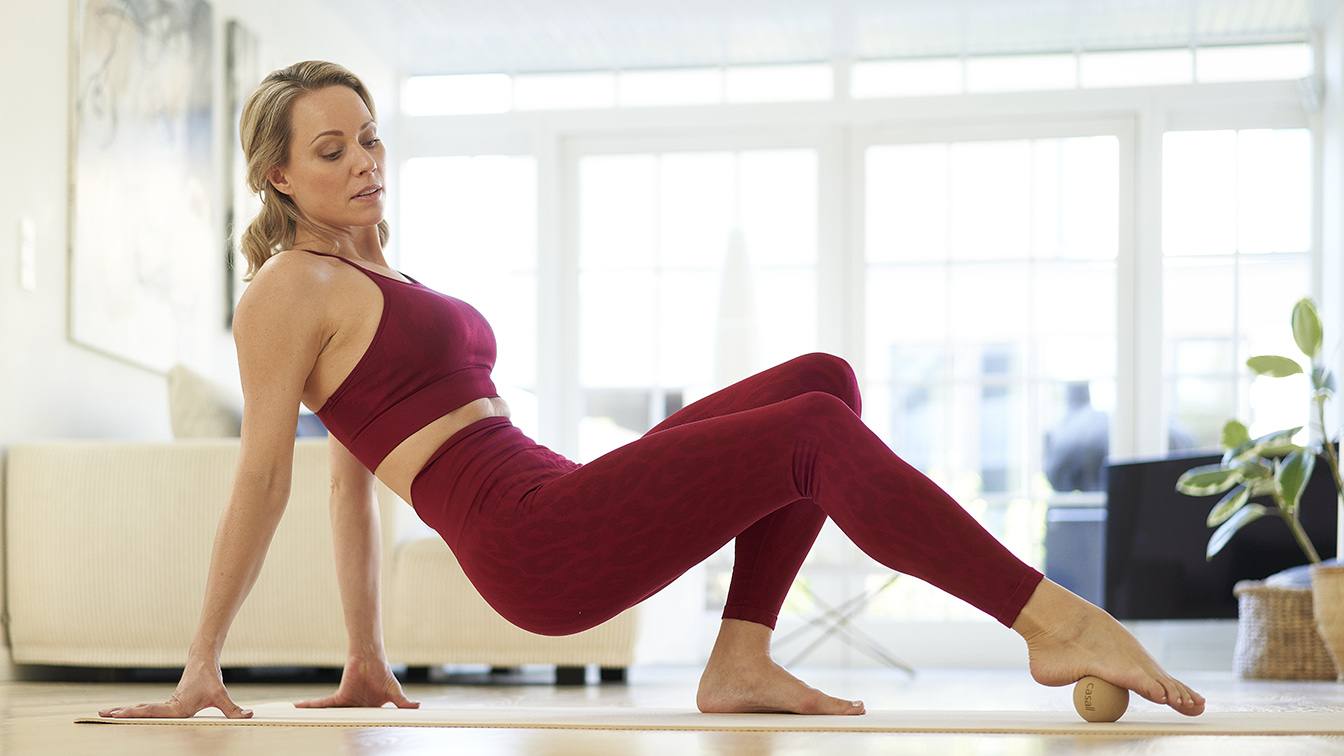
Seated for less pressure and standing up for more pressure. Place the ball under your foot. As you roll the ball under your foot try to press into the ball to release tension. Breath deep and slowly and when you find a pressure point keep the ball there and circle just round the area to go deeper.
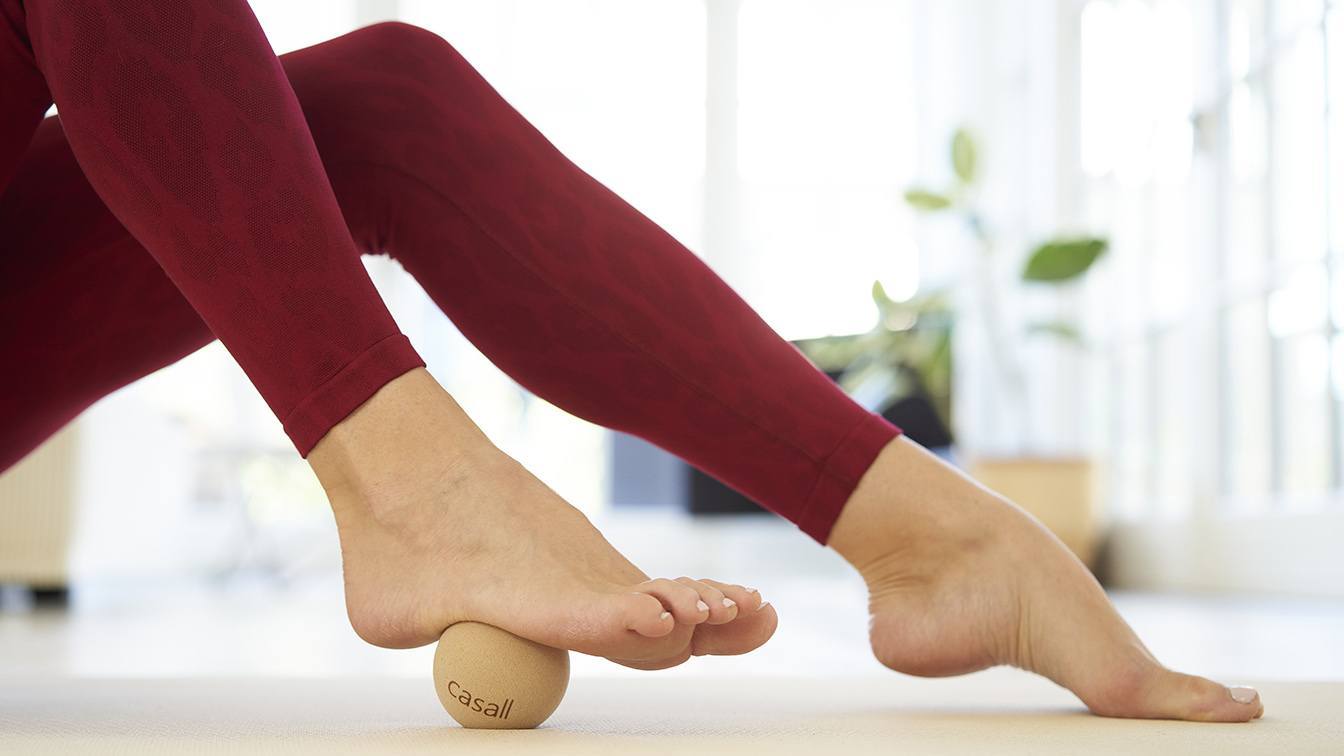
You can also place the ball just under your heal and just slowly put more and weight on it and breath in to it.
5. PRESSURE BALL EXERCISES - OUTSIDE THIGH
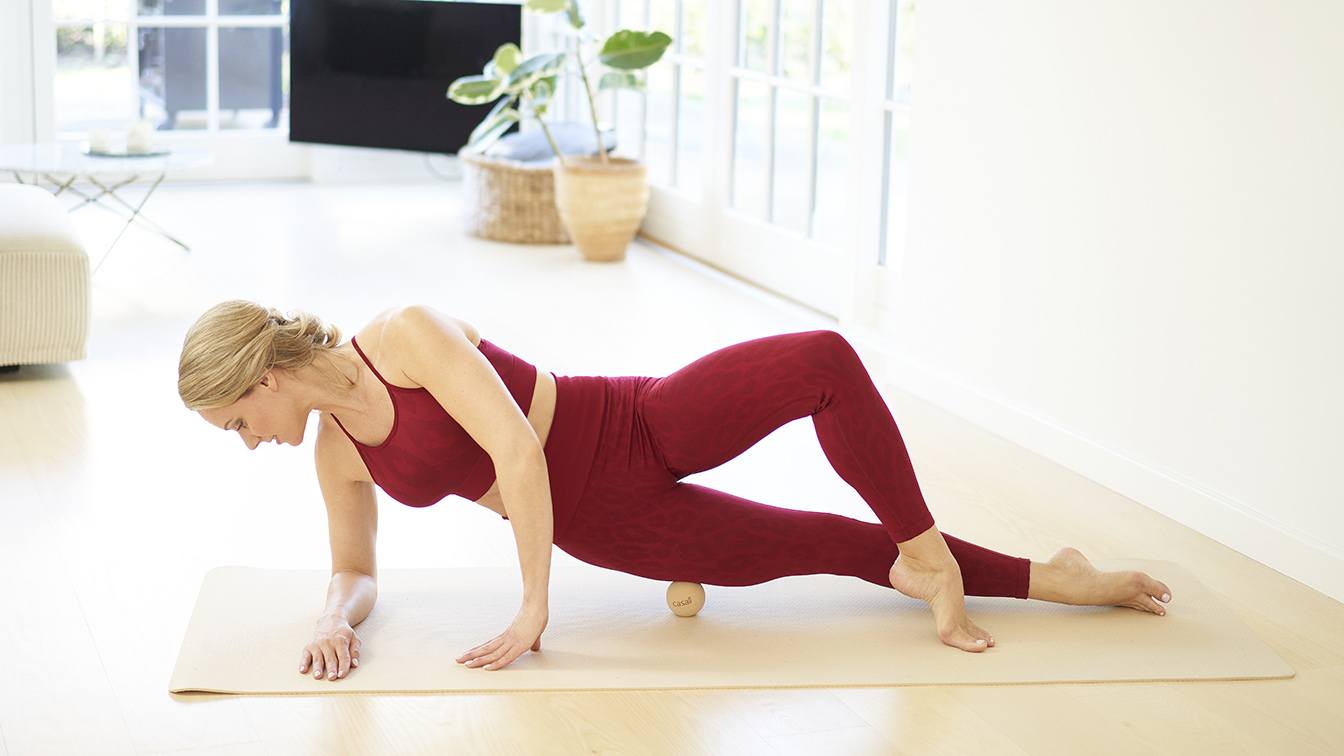
Place yourself on your side and place the ball just under your thigh. Bend the other leg in from of you and support yourself on your arm. Now slowly roll from above your knee and up on the outside of your thigh. Go slowly and locate your pressure points and gently press the ball in and around these areas. Breath deep and slowly to connect deeper.
HOW DOES FOAM ROLL TRAINING WORK?
Foam and tube roll training works by applying localized pressure to chosen regions of the body using, prescribed techniques as explained in this booklet. When pressure is applied with a roller, the roller exercises with help increase the circulatory flow through that area reducing soft tissue damage and improving movement dynamics.
It's a good idea to go barefoot or without shoes when you are foam rolling for a more relaxed feeling, and helps you to be more aware when completing the exercises.
When you encounter a tight area – which could be a tender spot in your muscle - rest on that spot, breathe deeply, and slowly massage back and forth and side-to-side with a subtle rocking motion for a few more reps or seconds, or until the tenderness you feel decreases by about 50%. When you cannot find any new trigger points, it is suggested to upgrade to a harder foam roller.
CAN FOAM ROLLER HELP PREVENT INJURIES?
Yes, studies have shown the benefits of regular foam and tube roll training can help reduce joint and back pain. Also aid as an excellent injury prevention tool.






